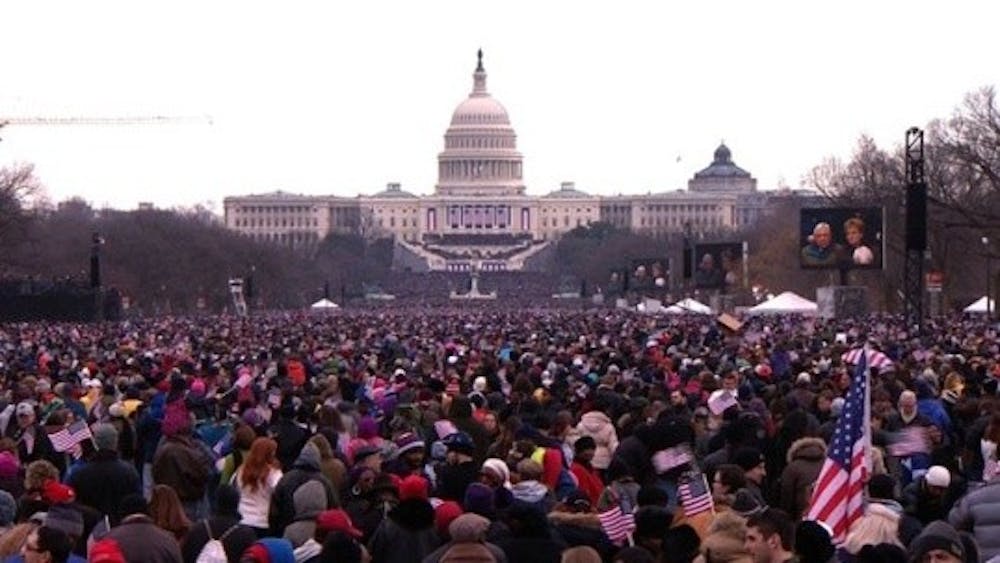By Kari Travis
Tens of thousands of onlookers stood on the National Mall, disregarding the icy air. Waiting.
This was the setting of President Barack Obama's second oath of office. The 57 overall presidential inauguration, and a true spectacle for our millennial generation.
"The atmosphere was unlike anything I had ever been a part of before," said senior Political Science major Tom Weingartner. "The air was electric." Weingartner and several friends arrived in Washington D.C. by 8 a.m. on the morning of the event. At least 100,000 people were already gathered to celebrate, he said.
"People were excited to be there, although generally less ecstatic than they had been for Obama's first inauguration," Weingartner added. The crowd, which grew to a whopping 800,000 cheering bystanders, was considerably less than the 1.8 million people who attended Obama's first inauguration.
 Photographs provided By Tom Weingartner
Photographs provided By Tom Weingartner
Some analysts conclude that the decided drop in attendance reflects the decline in Obama's popularity, especially among members of the younger generation.Twenty-somethings, students and young professionals are beginning to view Obama's policies as disappointing, according to Generation Opportunity, the leading advocacy group for 18-29 year olds in the U.S.
Recent pollings from the organization revealed that only 29 percent of 18-29 year-olds believe Washington's economic policies have been helpful. 76 percent of the demographic said that a lack of job opportunities is responsible for shrinking the American middle class.
Sean Kibby, Director of Strategic National Operations at Generation Opportunity, views Obama's inauguration as a second chance to consider better economic strategies to help young people succeed.
"Inauguration affords us a national opportunity both to reflect and to look ahead," Kibby said. "Young people are asking the President and our elected leaders to do what they have failed to do on urgent issues like youth unemployment - take action and achieve real results."
Weingartner, however, sees many successes rising from the Obama administration's first term. "(The President) fought to keep rates on student loans low, passed the stimulus package that staunched the hemorrhaging of the economy, and attempted to foster a collectivist ethos," Weingartner said.
The President's greatest shortcoming in working to support the success of students and young professionals was a failure to reshape the budget to ensure economic stability in the future, according to Weingartner.
"I think that Obama's best effort to help individuals out towards achieving higher educations would be to ensure that federal money is apportioned to schools in more efficient ways," Weingartner added. "This would be aided by changes to what's left of the framework created by no child left behind. In addition, encouraging schools to create courses developing entrepreneurial and STEM skills through grants and other means of funding would greatly help in achieving this goal."
Obama's next economic strategies will be revealed over time, but for now the opportunity to attend an event like the Presidential inauguration is a great way to celebrate a country that offers more chances for success than any other place in the world, Weingartner said. "It was just amazing to see that many people who wanted to invest that much time to witness the peaceful bestowing of democratic power," Weingartner concluded. "By dividing problems and attacking them wherever reasonable, we have the best chance of solving the myriad of domestic issues that press most fiercely upon our opportunity to remain a positive force in the world.






